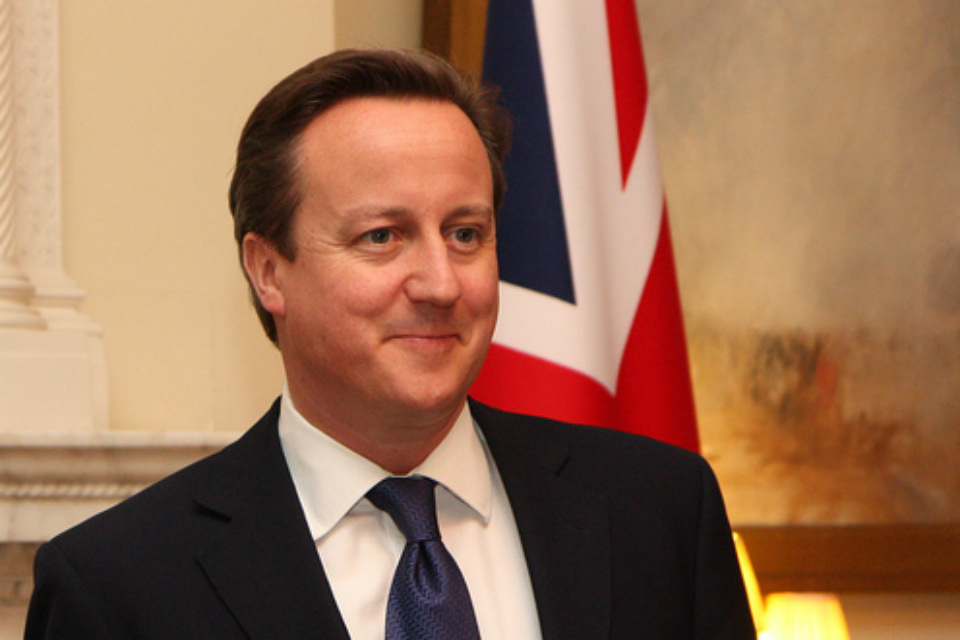"Only a coherent, coordinated response can tackle what is a truly global and indiscriminate threat"
Statement by UK Prime Minister David Cameron to UN Security Council on Foreign Fighters

The conflict in Iraq and Syria is shocking the world with its barbarity. The cruelty that is being meted out – beheadings, eyes being gouged out, rape – is horrific. It is literally mediaeval in its character. The appalling murder of the French citizen Hervé Gourdel is the latest horror. And the French President and French people have all our sympathies.
But one of the most disturbing aspects is how this conflict is sucking in our own young people, from modern, prosperous societies. And the threat to our security from foreign fighters is far greater today that it’s ever been in previous conflicts. And I pay tribute to President Obama for his personal leadership on this critical issue.
It is an issue that affects us all. The overall figures have been given, but let me say that from my own country it is 500 of these fanatics have gone to Syria and Iraq. And the shocking murders of James Foley, Stephen Sotloff and David Haines by a fighter with an apparent British accent underlines the sinister, direct nature of this threat. British people are sickened that a British citizen, a British citizen, could be involved in murdering people – including a fellow British citizen who had gone to Syria to help people – in this way. It is the very opposite of what our peaceful, tolerant country stands for.
So we need a response that involves every part of government and society – and every country involved in the widest possible international coalition. There are no easy answers or quick fixes. And I believe that we’ll be dealing with the effects of this threat for years. Because, as has been said, this is not just about ISIL. It’s about Al Shabab. It’s about Boko Haram. It’s about al-Qaeda. Everywhere there is conflict, everywhere there is poor governance, the poisonous narrative of Islamist extremism has taken hold.
But I believe there are three things we can do.
First we must reinforce our counter-terrorist efforts to prevent attacks and hunt down those who are planning them. For our part in the UK we are introducing new powers to strengthen our ability to seize passports and stop suspects traveling; to allow us temporarily to prevent some British nationals getting back into the country; to ensure that airlines comply with our no fly lists and security screening arrangements; and to enable our police and security services to apply for stronger locational constraints on those remaining in the UK but who pose a risk.
Second, and I believe crucially, we must defeat the poisonous ideology of extremism that is the root cause of this terrorist threat. Yes there are the websites and the preachers of violence and violent extremism, and of course, those must be taken down. But as the evidence emerges about the backgrounds of those convicted of terrorist of offences, it is clear that many of them were initially influenced by preachers who claim not to encourage violence, but whose world view can be used as a justification for it.
And we know what this worldview is–the peddling of lies: that 9/11 was a Jewish plot or the 7/7 London attacks were staged; the idea that Muslims are persecuted all over the world as a deliberate act of Western policy; the concept of an inevitable clash of civilisations. We must be clear: to defeat the ideology of extremism we need to deal with all forms of extremism – not just violent extremism. That means banning preachers of hate from coming to our countries. It means proscribing organisations that incite terrorism against people at home and abroad. It means stopping extremists whether violent or non-violent from inciting hatred and intolerance in our schools, in our universities and even sometimes in our prisons. In other words, firm, decisive action – to protect and uphold the values of our free and democratic societies.
And, as has been said, we need to provide an alternative narrative, particularly for these young people. I was particularly struck by what you said Secretary-General that missiles can kill terrorists but governance can kill terrorism. And we have to say again and again that this has nothing to do with the religion of Islam–a religion of peace. And we need Muslim country after Muslim country and Muslim leader after Muslim leader to speak out as the King of Jordan did so clearly today condemning these people that say they speak in the name of Islam when they do no such thing.
Third and finally, as well as the action we each take individually in our own countries, we must do much more working together to defeat this threat. The defeat of ISIL will only come about if we use all of the weapons at our disposal. Yes, sanctions against ISIL - and Al-Nusra - and I believe we should do more. But we must use our aid to feed and help the afflicted. We must use our diplomacy and political settlements to strengthen the countries of the region. And we need governments that represent all of their people, and yes, deal with their grievances.
The UK is committed to meeting this challenge. Only a coherent, coordinated response can tackle what is a truly global and indiscriminate threat. It is one part of a comprehensive strategy we have to dismantle and destroy ISIL. Our strategy must work in tandem with Arab states; always in support of local people; in line with our legal obligations; and as part of a plan that involves our aid, our diplomacy and yes, our military.
We need to act. And we need to act now.